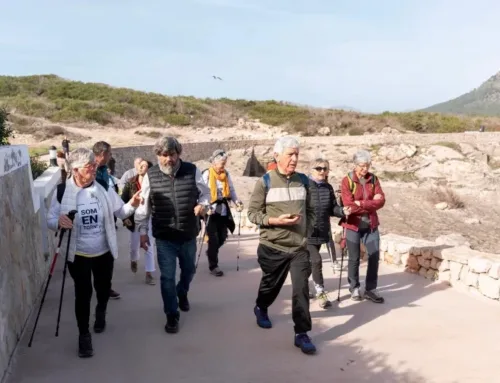The Regional Ministry of Business, Employment and Energy, through the Directorate General of Labour, has today submitted its objections to the draft of the preliminary bill on the reduction of the maximum duration of the standard working day, worktime recording, and the right to digital disconnection. The proposal, agreed upon by the Ministry of Labour and the trade unions, includes the reduction of the working week to 37.5 hours, a measure that has sparked widespread debate and opposition from employers’ organisations.

Catalina Cabrer, Secretary of Labour, Employment and Social Dialogue of the Balearic Government. Photo: CAIB.
“This Government does not agree with this preliminary bill. We call on the national Government to reconsider and bring this measure back to social dialogue. Working hours, as stated in the Workers’ Statute, are subject to collective bargaining,” said the Secretary of Labour, Employment and Social Dialogue, Catalina Cabrer. “Its imposition will create a tension that will threaten the social harmony, which is the sine qua non condition for a region to develop a project, address its challenges, and carry out its planned tasks,” she added.
Territorial specificities
Cabrer explained that “currently, sectoral collective agreements of private companies, in 100% of cases, set working weeks of 40 hours. This means that employers and trade unions in our region are not agreeing to such reduced working hours. This must be taken into account. The project proposed by Minister Yolanda Díaz has not reflected on the specificities of each region, and this is a concern for us.”
In this regard, the Secretary of Labour, Employment and Social Dialogue emphasised that “the Government of the Balearic Islands is based on dialogue, and this law does not reflect the dialogue we advocate in this community. Measures must be agreed with both employers and trade unions because both stakeholders are equally important.” According to Cabrer, the Balearic Islands’ position as leaders in job creation, with an average of 570,000 contributors to Social Security and a monthly unemployment figure of less than 29,000 people, is precisely “thanks to the efforts of the business community, the self-employed, and workers.”
Another objection is that the law does not take into account the characteristics of each Autonomous Community: “In the Balearic Islands, we have a service-based economic system that is a national and global benchmark, but we also face a staff shortage. We cannot allow measures to be implemented without considering the specificities of each region and each sector—measures that must stem from dialogue and consensus,” concluded Catalina Cabrer.







Leave A Comment